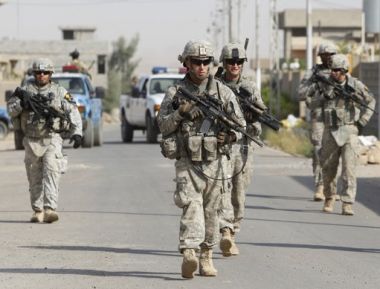Fewer Americans think U.S. is still world's superpower, Gallup survey shows

Less than half of the American populace believe that the United States is still the number one military power in the world, according to the results of a Gallup survey released this month.
Only 49 percent of respondents told Gallup that they believe the U.S. has the No. 1 military in the world, a drop of 10 percent from 57 percent who said the same in 2015. Another 49 percent said America is not the top fighting force in the world anymore—a 23-year high and up from 38 percent last year.
"The 10-point drop in the percentage of Americans who believe the U.S. is the No. military power in the world may reflect worries about international terrorism, which the public views as the most critical international threat the nation faces,'' Gallup said.
"It may also reflect the discussion of the military and defence in the current presidential election campaign. The uptick in Americans' view that the nation is spending too little on its military may partly reflect these two dynamics, but also follows the classic ebb and flow of attitudes about military spending in response to ups and downs in the nation's actual spending,'' it added.
The survey also asked how important it is for the U.S. military to be the strongest in the world, and 67 percent said it is indeed important, a small decline from the 68 percent who said the same in 2015.
Meanwhile, for the first time since February 2001, a majority of those polled felt the U.S. spent too little on national defence and the military, though only by a small margin: 37 percent felt spending was too little, 32 percent said it was too much and 27 percent said it was about right, Fox News reported.
Among Republicans, 66 percent said the nation was spending too little on the military, compared to just 20 percent of Democrats and 27 percent of Independents. Majorities of Democrats (45 percent) and Independents (39 percent) said the U.S. spent too much on the military.
The survey was conducted among a random sample of 1,021 adults from February 3 to 7 and has a margin of sampling error of plus or minus 4 percentage points.











